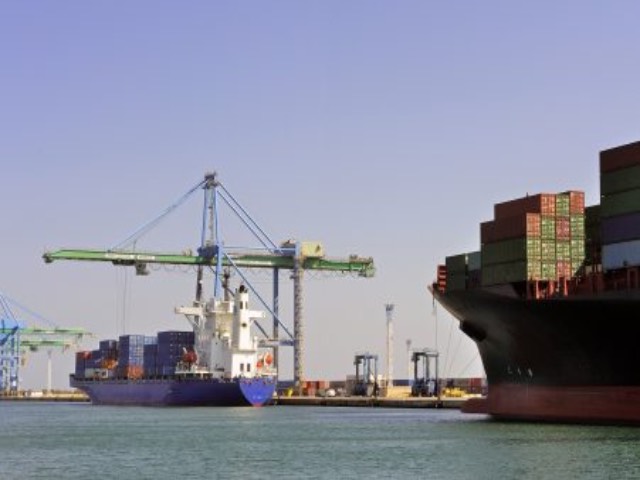
A major focus in the world of logistics is having clear information in advance on the goods that will arrive at the terminal tomorrow and further ahead, says Dominique Lebreton, member of the executive board at Marseille-based MGI, which is continuing to develop its Ci5 Port Community System.
“By connecting the different stakeholders and IT systems we have in our ecosystem, we provide traceability and fluidity of information on what is arriving in the terminals,” he says. “Our system offers traceability to our customers. The more we connect to our hinterland, the more we will be able to improve the attractiveness and performance of the logistics chain.”
While Ci5 is MGI’s main solution, it is also developing services such as an augmented manifest through AI and it continues to push forward with new innovations and projects.
“We are integrating new technologies and innovations by using Big Data, the IoT, smart containers, AI and blockchain,” says Catherine Mégélas, head of corporate and internal communication. “Ci5 provides better supply chain management so that all the different actors in the port, airport and logistics community are interconnected and informed. The advantages of our PCS and allied services include speeding up goods transit, tracking goods and handling more goods thanks to productivity increases. For example – with Ci5, Customs processing is done in less than four minutes and more than 80% of goods transit and exit the port area within 24 hours. You are able to cut back on emails and phone calls, and users benefit from 80% productivity gain and 90% reduction in export fees.”
internal communication. “Ci5 provides better supply chain management so that all the different actors in the port, airport and logistics community are interconnected and informed. The advantages of our PCS and allied services include speeding up goods transit, tracking goods and handling more goods thanks to productivity increases. For example – with Ci5, Customs processing is done in less than four minutes and more than 80% of goods transit and exit the port area within 24 hours. You are able to cut back on emails and phone calls, and users benefit from 80% productivity gain and 90% reduction in export fees.”
Dominique refers to a study carried out five years ago into the admin costs for a 20-ft export container. “Without the PCS, the admin costs regarding phone calls, mail, data exchange and other communications were calculated at €100,” he says. “The implementation of our PCS, with central database and communications platforms for different interactions between stakeholders, has cut the cost to €10. A saving of €90 per container is huge when you consider the number of containers moving daily.”
There are environmental advantages too, Catherine points out – using Ci5 helps to reduce CO2 emissions because trucks spend less time queueing and waiting to load or unload cargo.
MGI is being pushed by customers to offer more and more traceability, says Dominique. “Our motto is how can we offer more traceability for importers and exporters. To do this, we interconnect with the IT systems of barge and train operators to offer real traceability of goods. In Marseille, our hinterland stretches via the Rhone to the Lyon area. Ci5 can track the information of containers loaded or unloaded on barges or trains, by EDI or web services. Ci5 also links to air service operators to provide similar traceability.
Last year MGI ran a project using blockchain and photographs to provide more information and traceability for stakeholders further along the supply chain, using smartphones linked to the PCS. “Exporters and importers tend to be less integrated into our PCS – we demonstrated that this method would be easy to implement. This is one way to bring importers and exporters into the circle,” he says.
“Also, we can use AI in order to give information to terminals on what is expected to happen in the next few days. We are working with students and with CA Technologies’ laboratory in France to develop predictive analysis for the terminal operator which will help them to pinpoint times of peak demand and plan the equipment and human resources they will need to deploy on a given day.”
Work is under way to connect Ci5 to France’s Cooperative Intelligent Transport System (C-ITS), which provides real-time traffic information on the highways. This could give drivers and terminals even more precise arrival times, depending on factors such as typical traffic loads, congestion, traffic incidents and even weather, and is another way to link trucks, barges and trains to ports and airports to create streamlined supply chains.
MGI also wants to be more interconnected to the city’s IT system to provide information in both directions. “The city is really interested in the data we are capturing into the PCS, for example for them to give information to citizens on activity at the port so that they know, for example, when there will be more port traffic,” says Dominique.
Marseille was a partner in a recent ‘Smart Port Hackaviz’ which involved 130 students working on data provided to create information tech solutions to support the ports of the future. MGI’s innovation team will work with one of the winners to develop their project proposals this year.
“We are always trying to imagine the future and see the innovations,” says Dominique. “We are always asking: how can the different players be more interconnected and more interoperable, and have more efficient procedures within the entire logistics chain?”
Catherine adds: “We are going a lot further than most PCSs – we are a Port Community System, but we are expanding to become a whole community system.”









































